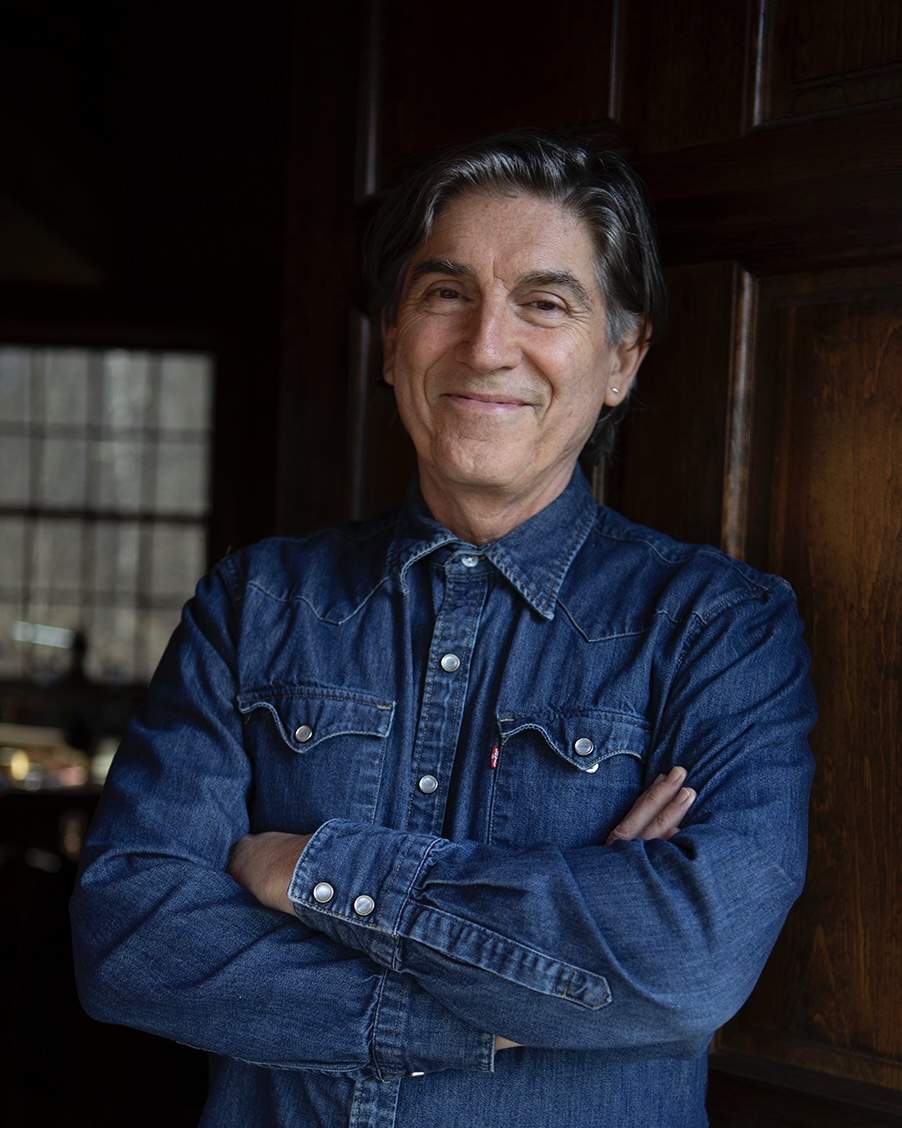Celeste Lecesne

© Paula Allen
About
Celeste Lecesne (he/they) (Celestelecesne.com) , wrote the short film TREVOR, which won the 1995 Academy Award for Best Live Action Short and he is co-founder of The Trevor Project, the largest nationwide 24-hour suicide prevention and crisis intervention Lifeline for LGBT and Questioning youth. He created THE ROAD HOME Stories of Children of War, which was presented at the International Peace Initiative at The Hague, and he was the executive producer of After The Storm, a documentary film that tells the story of 12 young people living in the wake of Hurricane Katrina. He has published three novels for young adults, and edited the anthology, The Letter Q: Queer Writer’s letters to Their Younger Selves. He was a writer on TV for the shows Will & Grace and Further Tales of the City (Emmy nom). A performer as well as a writer, Celeste has created several Off Broadway solo shows including The Absolute Brightness of Leonard Pelkey, Word of Mouth and One Man Band: The NYTimes has ranked him “among the most talented solo performers of his (or any) generation.” He is also co-founder of The Future Perfect Project, a nationwide arts initiative providing creative workshops to LGBTQ+ youth and creating content that expresses their vision of a better world.
LACP Interviews Celeste Lecesne
LACP asks Celeste Lecesne ten questions about their background, career in and beliefs about writing
Los Angeles Center of Photography: What kind of writer are you?
Celeste Lecesne: I am a storyteller. Whether I’m writing, acting, producing or trying to create social change, it’s the story that gets me involved. But in the process of getting things done and trying to make the world a better place, I’ve also been telling the story of my life.
LACP: How long have you been writing?
CL: Ever since I started keeping a journal at the age of 14. And I’ve never stopped.
LACP: Where did you get your training?
CL: The world.
LACP: When did you know you wanted to devote your life to writing?
CL: I knew I wanted to be a storyteller at 14 years when I discovered the theater. The theater was the portal through which I learned not only HOW to tell a story, but also WHY to tell a story. For over forty years, I’ve been working to keep my WHY bigger than my HOW. The HOW is always a challenge for every writer, and it never gets any easier no matter how long you’ve been at it. But over the years I’ve gotten clearer and clearer about WHY I’m telling a particular story and what I want my words to do. This has been a great help. The Why.
LACP: Did you ever come close to giving up?
CL: Every day.
LACP: Have you sacrificed anything by being a writer?
CL: I think every artist has to sacrifice certain things in the service of their Art. But I made my decision early on in life and in my experience, the benefits of living a life as an artist far outweigh whatever was lost.
LACP: What have you gained by being a writer?
CL: Having written a story that inspired the founding of The Trevor Project, a suicide prevention and crisis intervention Lifeline for LGBTQ youth, I learned just how powerful a single story can be. When the film premiered on HBO in 1998, we launched The Trevor Project, and for over 25 years tens of thousands of lives have been saved. What better gain could there be in this world than to know that something you wrote – a story that was only fifteen minutes long – has saved so many lives?
LACP: What classes do you teach at LACP?
CL: STORY
LACP: What do you love most about teaching?
CL: Every story we tell is the myth of our lives struggling to be heard. Being in a room with a group of people who are exploring their individual myths, giving voice to emotional, political, and personal truths and then creating a structure that will carry their stories into the world is a form of magic. Whether we are working on a screenplay, a TV pilot, a stageplay, a one-person show, a novel or a series of photographs, knowing the basic rules of story can help each one of us discover what it is we truly believe about the world and about ourselves.
LACP: What advice would you give someone who is thinking about making a career in writing?
CL: The best advice I’ve ever heard about dedicating one’s life to any art form was given by the great modern dancer, Martha Graham, to her student Agnes DeMille:
“There is a vitality, a life force, a quickening that is translated through you into action, and there is only one of you in all time, this expression is unique, and if you block it, it will never exist through any other medium; and be lost. The world will not have it. It is not your business to determine how good it is, not how it compares with other expressions. It is your business to keep it yours clearly and directly, to keep the channel open. You do not even have to believe in yourself or your work. You have to keep open and aware directly to the urges that motivate you. Keep the channel open. No artist is pleased. There is no satisfaction whatever at any time. There is only a queer, divine dissatisfaction, a blessed unrest that keeps us marching and makes us more alive than the others.”